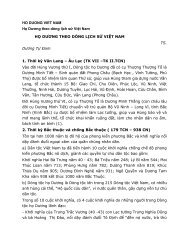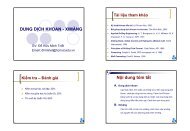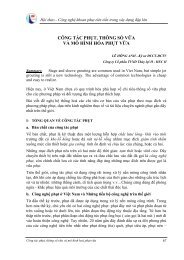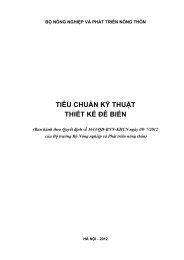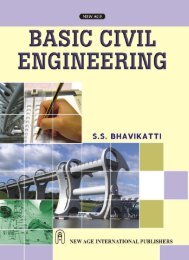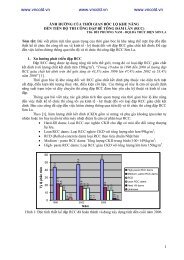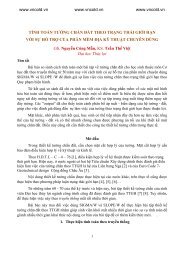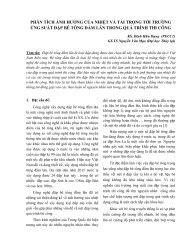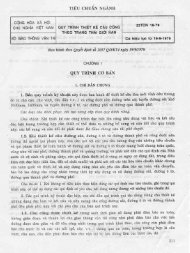Civil Engineering Project Management (4th Edition)
You also want an ePaper? Increase the reach of your titles
YUMPU automatically turns print PDFs into web optimized ePapers that Google loves.
92 <strong>Civil</strong> <strong>Engineering</strong> <strong>Project</strong> <strong>Management</strong><br />
the works or which add entirely new items; these are matters the engineer<br />
must refer to the employer who will need to negotiate with the contractor his<br />
agreement to undertake the addition (see Section 17.3).<br />
Although the engineer is given a wide range of powers, he should not use<br />
them without reference to the parties to the contract, either of whom may wish<br />
to state his view on matters the engineer has to decide. The FIDIC conditions, for<br />
instance (see Section 4.3), specifically call for such consultation by the engineer<br />
as part of the procedure he must adopt before arriving at his decision.<br />
However, if the employer wishes to restrict the engineer’s powers which<br />
would otherwise be exercisable under the contract, the employer must state<br />
in the tender documents the specific powers which the employer reserves for<br />
himself. Both the ICE conditions Clause 2(1)(b), and the FIDIC <strong>4th</strong> edition<br />
conditions require this. But it is unwise for the employer to reserve too many<br />
powers for himself, because this could affect the basis of contract and reduce<br />
the benefit of having an independent engineer. Tenderers might then take a<br />
different attitude towards the contract, since a tenderer may only offer his lowest<br />
price if he is confident that an independent engineer will administer the<br />
contract. Employers should also be aware that prior approving of matters such<br />
as extension of time or claims may restrict their ability to dispute them later.<br />
However an employer may sometimes wish to ensure that he is involved in<br />
decisions likely to cause additional expenditure above some given limit, or<br />
which alter significantly some aspect of the works. In practice, such restrictions<br />
are unlikely to detract from the engineer’s independent position because<br />
the engineer should keep the employer advised of such matters and endeavour<br />
to agree with him what should be done. Most extra costs arise from having<br />
to deal with unforeseen conditions which must necessarily be dealt with,<br />
or from alterations required by the employer himself.<br />
A different situation can arise if it becomes evident that the estimated final<br />
cost of the contract is approaching or likely to exceed the contract sum. In that<br />
case the engineer must forewarn the employer in good time, because an<br />
employer such as a government or local government authority, may have no<br />
authority to spend more than the contract sum, or may need to go through<br />
a lengthy procedure to obtain sanction for any excess expenditure. In these<br />
circumstances the employer may need to step in and negotiate with the contractor<br />
a change to the works required, or perhaps deferment of construction<br />
of part of the works to some later date.<br />
8.5 The engineer’s duty to provide all necessary<br />
drawings to the contractor<br />
Under the ICE conditions the engineer has a duty to provide the contractor<br />
with the drawings and further instructions needed to carry out the works. This<br />
is additional to the tender drawings issued which do not need to show every<br />
detail. The engineer must therefore watch construction progress to ensure any




